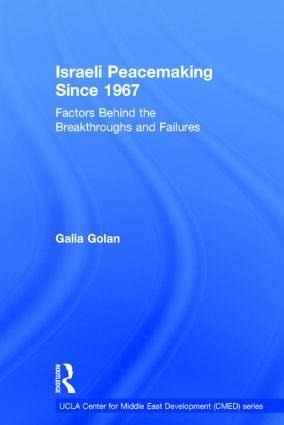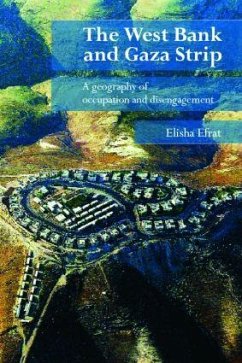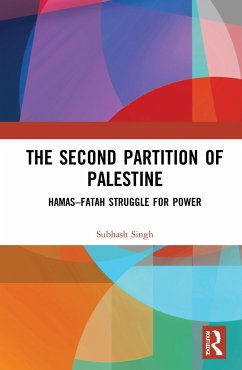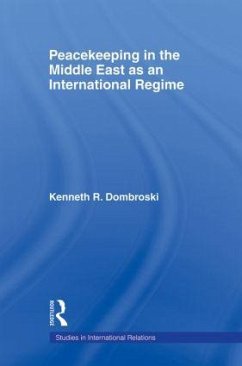
Israeli Peacemaking Since 1967
Factors Behind the Breakthroughs and Failures
Versandkostenfrei!
Versandfertig in 1-2 Wochen
195,99 €
inkl. MwSt.
Weitere Ausgaben:

PAYBACK Punkte
98 °P sammeln!
Examining the Israeli-Arab conflict as an "intractable conflict," Israeli Peacemaking since 1967 seeks to determine just which factors, or combination of factors, impacted on Israel's position in past peace-making efforts, possibly accounting for breakthroughs or failures to reach agreement. From King Hussein's little known overtures immediately after the Six-Day War, through President Sadat's futile efforts to avoid war in the early 1970s, to repeated third-party-mediated talks with Syria, factors including deep-seated mistrust, leadership style, and domestic political spoilers contributed to...
Examining the Israeli-Arab conflict as an "intractable conflict," Israeli Peacemaking since 1967 seeks to determine just which factors, or combination of factors, impacted on Israel's position in past peace-making efforts, possibly accounting for breakthroughs or failures to reach agreement. From King Hussein's little known overtures immediately after the Six-Day War, through President Sadat's futile efforts to avoid war in the early 1970s, to repeated third-party-mediated talks with Syria, factors including deep-seated mistrust, leadership style, and domestic political spoilers contributed to failures even as public opinion and international circumstances may have been favourable. How these and other factors intervened, changed or were handled, allowing for the few breakthroughs (with Egypt and Jordan) or the near breakthrough of the Annapolis process with the Palestinians, provides not only an understanding of the past but possible keys for future Israeli-Arab peace efforts. Employing extensive use of archival material, as well as interviews and thorough research of available sources, this book provides insight on just which factors, or combination of factors, account for breakthroughs or failures to reach agreement; a framework useful for examining both the Israeli-Arab conflict and intractable conflicts in general.














